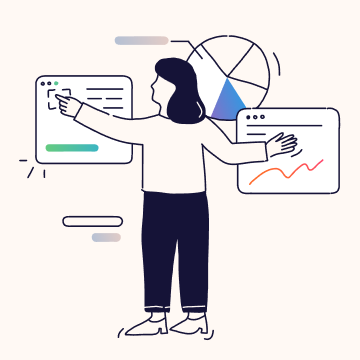How AI Agents Are Transforming Product Management
- Harshita Adlak
- May 23, 2025
- 3 min read

Introduction: In a world where speed, personalisation, and automation define product success, artificial intelligence (AI) has become an indispensable tool for product managers. But we’ve entered a new phase—one where AI agents, autonomous tools capable of making decisions and executing tasks, are reshaping how we build and manage products.
As product managers, our job is to be proactive, customer-centric, and agile. AI agents promise to amplify our strengths and offload the repetitive, analytical, and optimization-heavy tasks that slow us down. Let’s explore what AI agents are, how they’re impacting the product lifecycle, and what this means for the future of product leadership.
What Are AI Agents?
AI agents are systems that can perceive their environment, reason about it, and act independently to achieve specific goals. Unlike traditional AI tools that require frequent human input, agents are autonomous. They can be given an objective—like “optimize user onboarding” or “monitor customer churn”—and continuously learn and act toward that goal without constant oversight.
Think of them as smart collaborators rather than tools: they can analyze data, suggest actions, execute minor tasks, and even interact with users or APIs.
Where AI Agents Fit into the Product Lifecycle
1. Customer Research & Discovery
AI agents can analyse millions of data points from customer feedback, support tickets, or social media to surface pain points or feature requests—often in real-time. This shifts discovery from reactive to predictive.
Example: An AI agent continuously monitors app reviews and flags emerging user trends, reducing the time spent sifting through NPS scores or survey results.
2. Ideation & Roadmapping
AI agents can suggest feature ideas based on market gaps, competitor updates, and usage analytics. They can even simulate user journeys to assess the impact of proposed features.
Imagine having an AI partner that proactively updates your roadmap based on shifting user behavior or business KPIs.
3. Design & Prototyping
Some AI agents now assist in UI/UX design, generating wireframes or A/B test variants based on behavioural insights. They help product managers iterate faster and collaborate more efficiently with design teams.
4. Development & Delivery
Agents can support DevOps by automating QA, writing user stories from requirements, or identifying bugs by reading logs. They help enforce sprint hygiene and surface blockers before they escalate.
5. Post-Launch Optimization
Perhaps the biggest opportunity lies here—AI agents can autonomously A/B test pricing, layouts, or notification timings, learning and adapting with each cohort of users.
The Role of the Product Manager in an AI Agent World
Some fear that AI will replace product managers. That’s not likely—but our role is evolving.
In an agent-powered world, PMs will shift from decision-makers to decision-guiders. We’ll spend less time on operational details and more on:
Framing the right problems
Defining ethical boundaries for agent behavior
Aligning AI outputs with customer empathy and business values
Validating and interpreting agent-driven insights
Our leadership will lie in asking the right questions, not always having the answers.
Challenges to Keep in Mind
Bias & Ethics: AI agents are only as good as the data they train on. Ensuring fairness and transparency is a PM’s responsibility.
Over-Automation: Not everything should be handed off. Human judgment remains vital in sensitive user interactions or strategic pivots.
Explainability: Stakeholders need clarity on why AI agents make certain decisions. Black-box models can undermine trust.
Final Thoughts
AI agents are not the future—they are the present. For product managers, embracing them means evolving our mindset, workflows, and toolkits. The best PMs will not compete with AI but will learn to collaborate with it, using agents to move faster, deliver smarter, and focus more deeply on strategy and user value.
Are you ready to lead in the era of AI agents?
Let’s discuss in the comments or connect on LinkedIn.



Comments